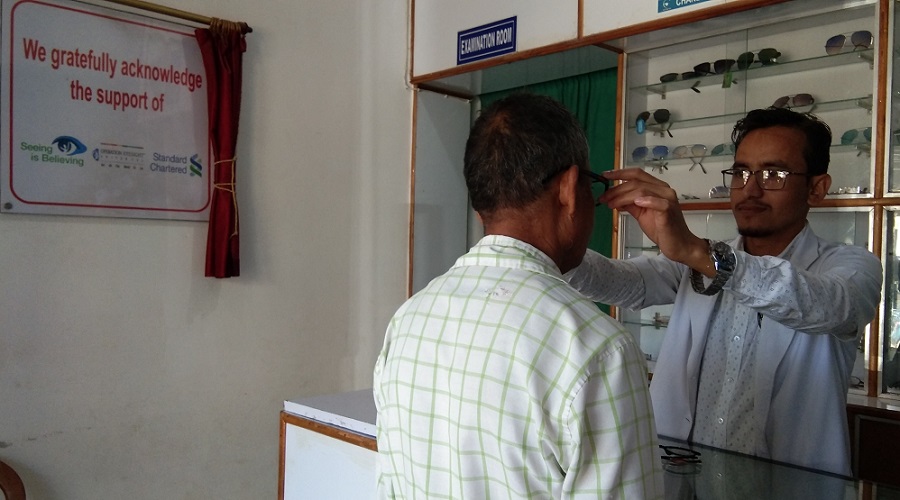Join a powerful, unprecedented alliance for better eye health for all.
Join IAPB-
Choose an alternate language here

Achieving a goal of universal health coverage is a complicated aspiration with many moving parts. The rate of cataract surgeries among the marginalised population of India has significantly increased, thanks to government-run health insurance programmes (Rashtriya Swasthya Bima Yojna and the recently launched Ayushman Bharat), and an increase in government allocation of financial assistance to NGO partners. While the availability of this funding is a very positive development, there are still many people in need of eye health intervention who have no idea this kind of support is available to them.
And cataracts are not the only cause of vision impairment among this population. According to the World Health Organization’s World Report on Vision, at least one billion people worldwide have vision impairment that could have been prevented or has yet to be addressed, and 123.7 million of these people suffer from unaddressed refractive error. In fact, recent studies have found that visual impairment and blindness caused by uncorrected refractive errors are expected to rise by about 10% and 8%[1] respectively. With a lack of coverage for prescription glasses through insurance programs, the implementation of self-reliant vision centres is a viable solution to bridge this gap.
Operation Eyesight, with support from Seeing is Believing, has established four vision centres in 2018 across two states of India. Our relentless efforts and meticulous planning have helped us to achieve the sustainability of the vision centres within a few months of their establishment (see Table 1). We focused on six key principles to achieve this.
The long-term sustainability of our vision centres can be attributed in large part to a focus on involving the community from the planning stage of the project, and to the fact that we ensure demand is in place for the vision centre’s services to ensure a flow of revenue. Through the establishment of vision centres that act as an interface between the target communities and our partner hospitals, we have been able to empower underserved and marginalized communities to access quality, affordable eye care on a permanent and sustainable basis that will lead to the elimination of avoidable blindness.
[table “70” not found /]Article submitted by:
Kashinath Bhoosnurmath
VP, International Programmes
Dr. Harish Kumar
Programme Manager – South Asia
[1] Santosh G Honavar. The burden of uncorrected refractive errors. Indian Journal of Ophthalmology. Year : 2019 | Volume: 67 | Issue Number: 5 | Page: 577-578